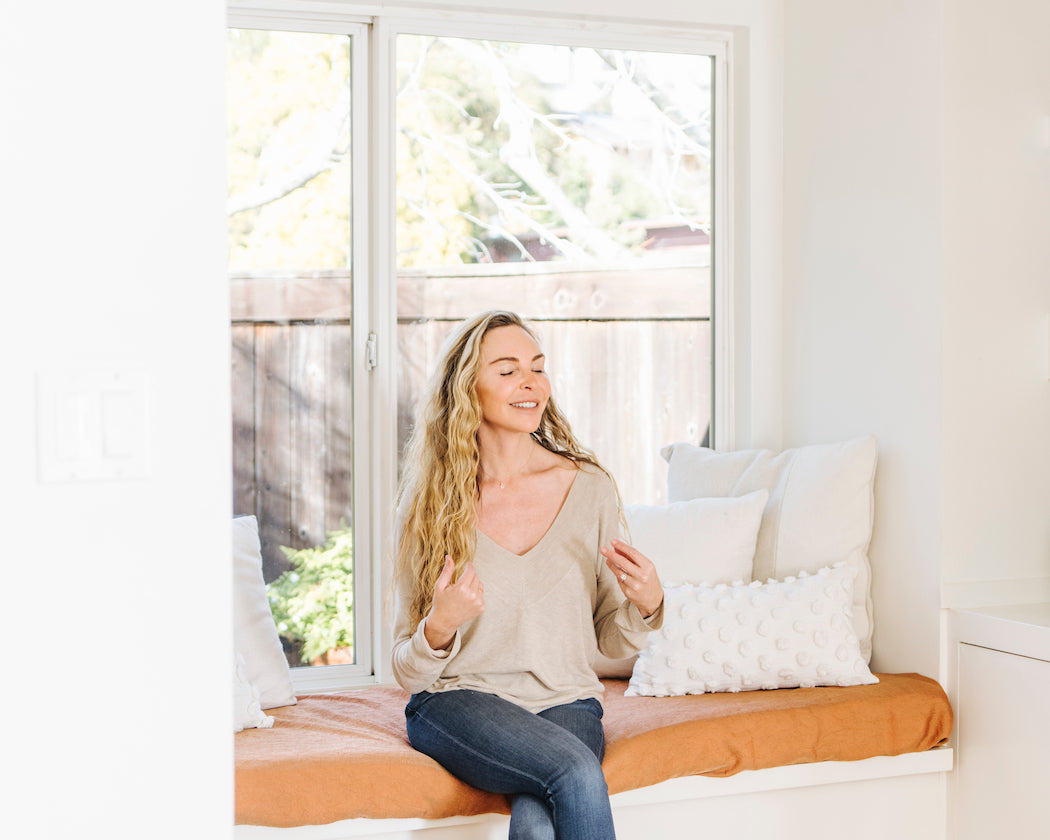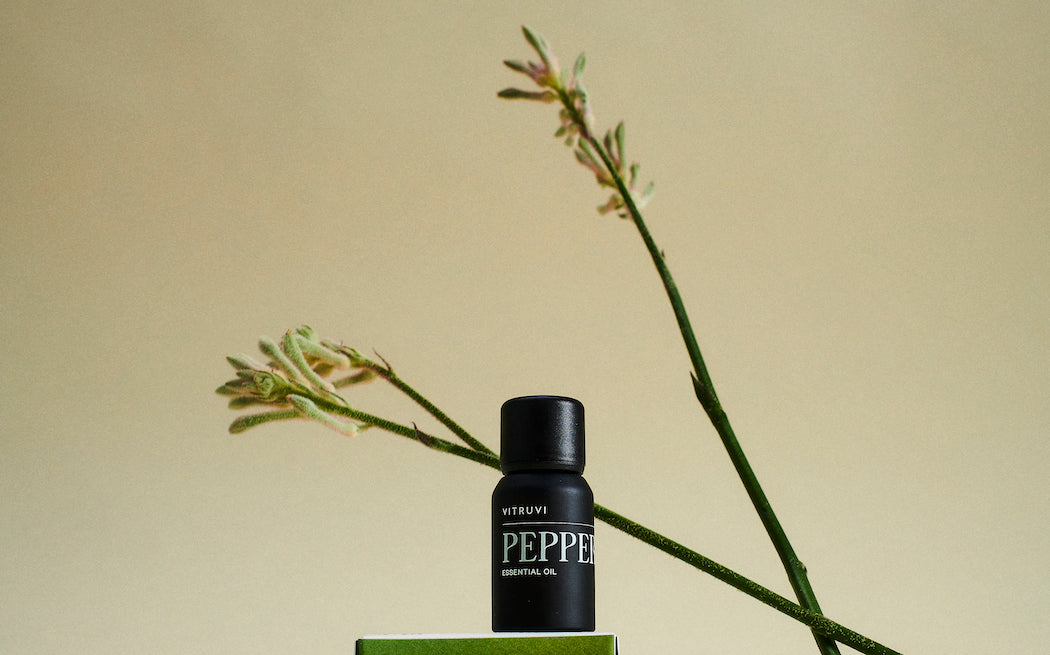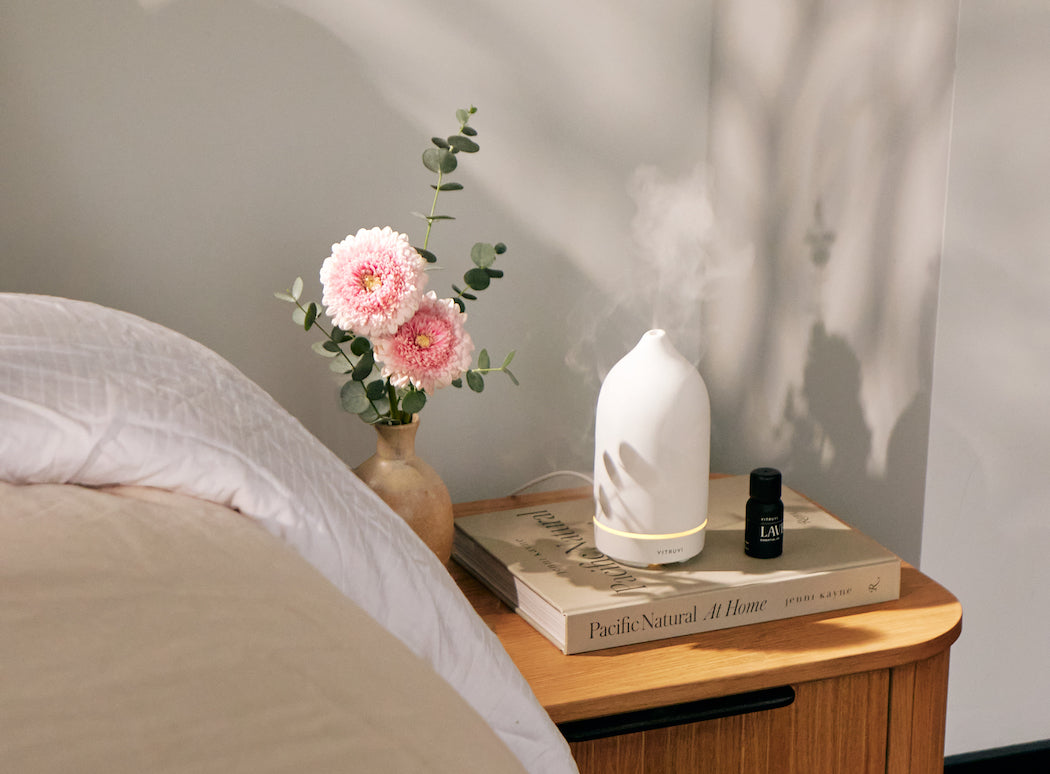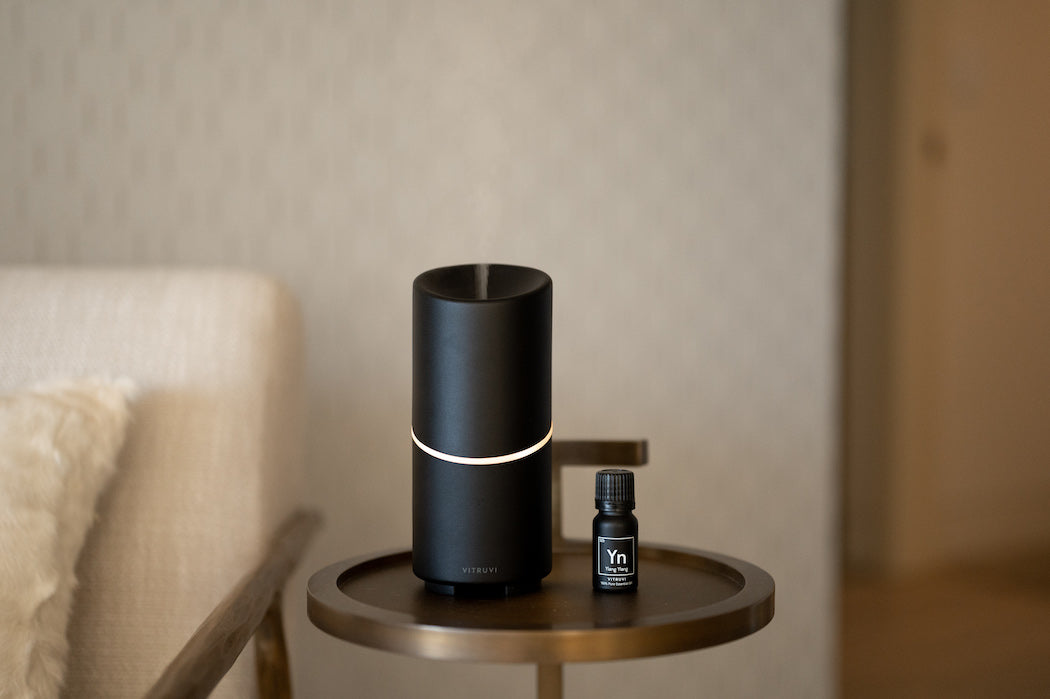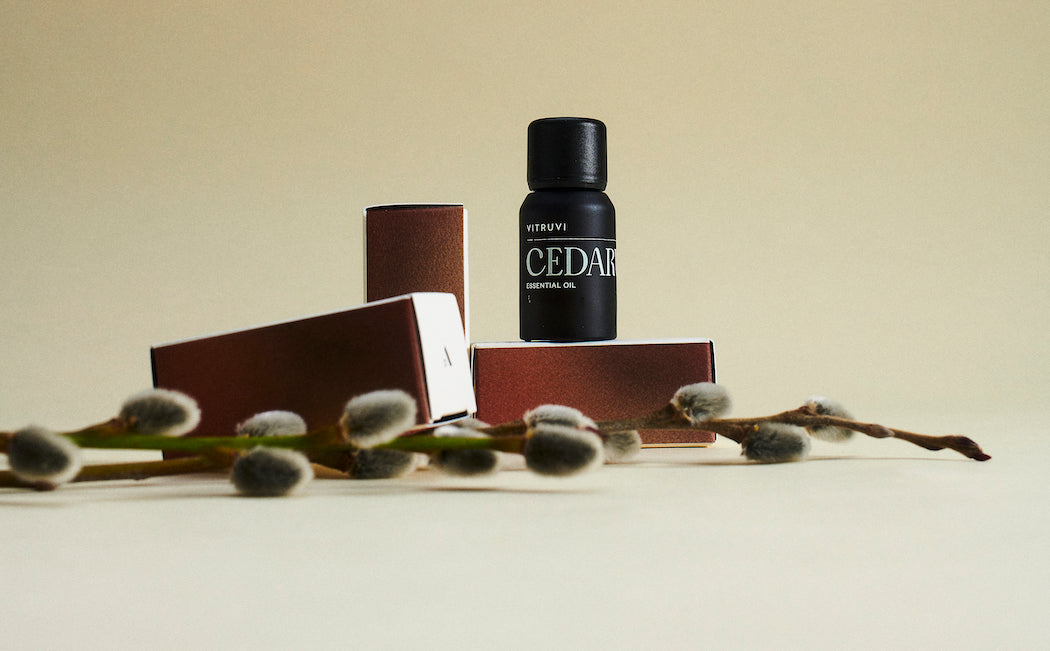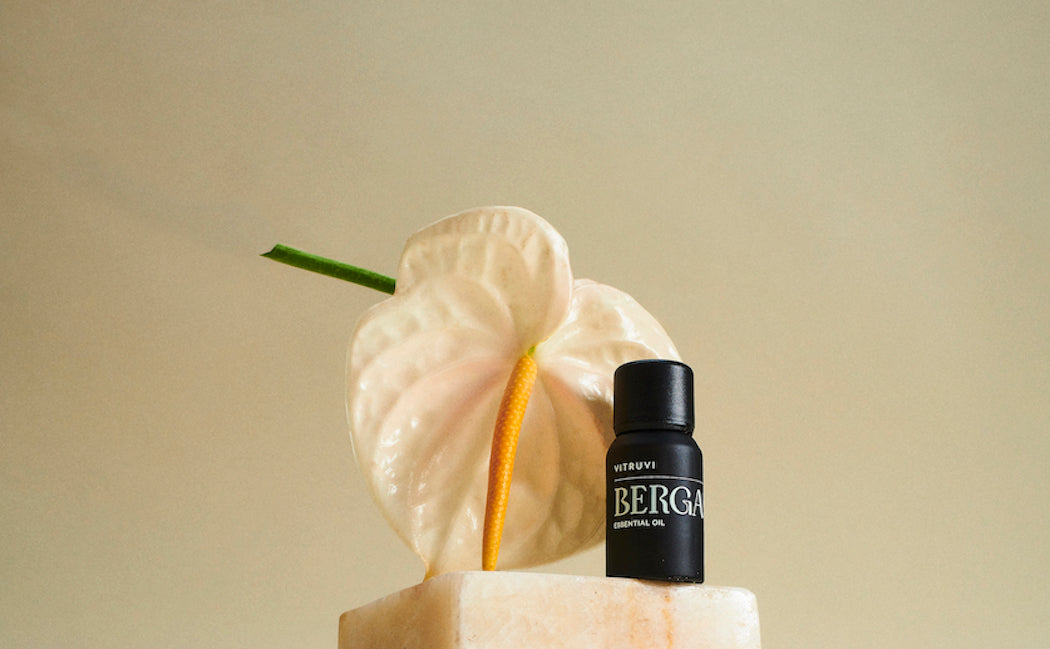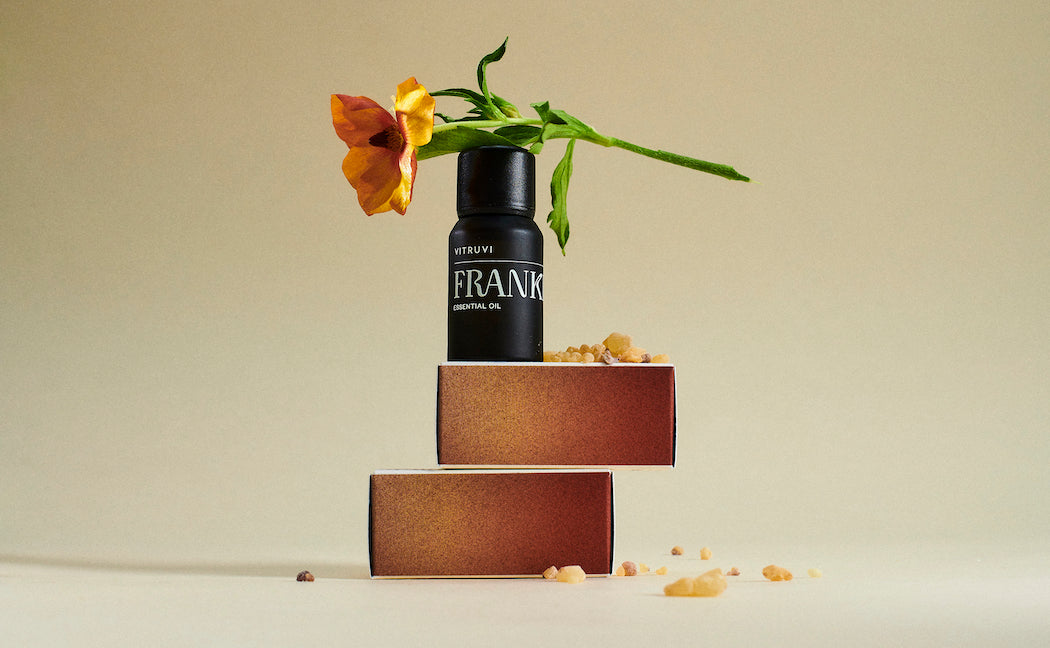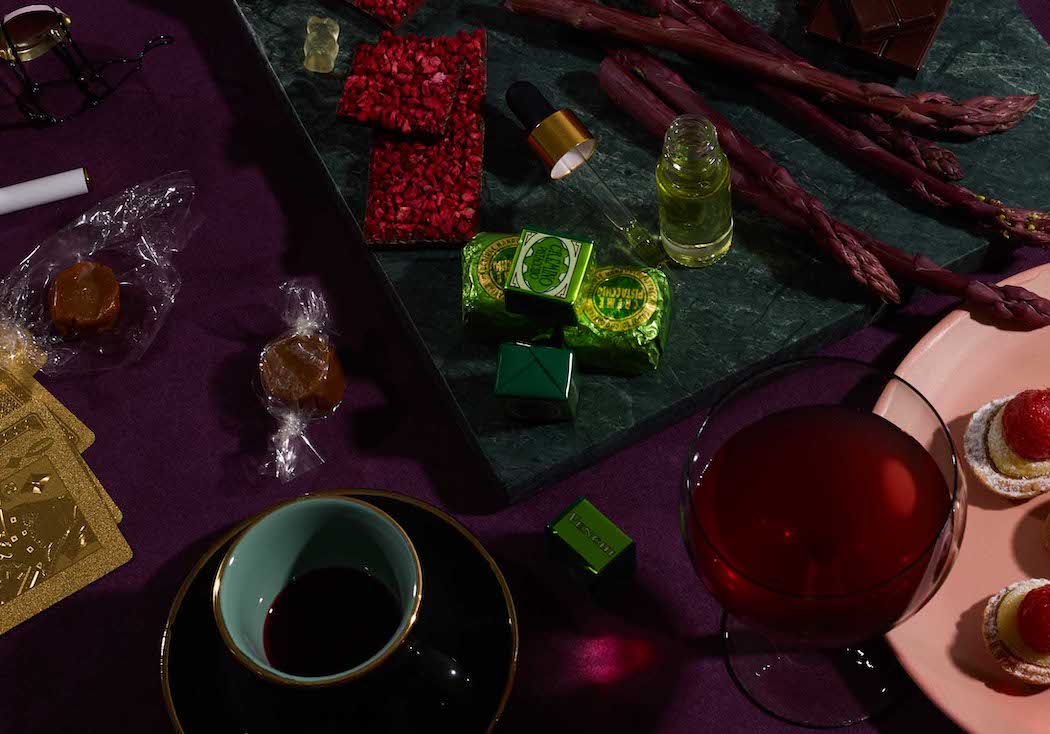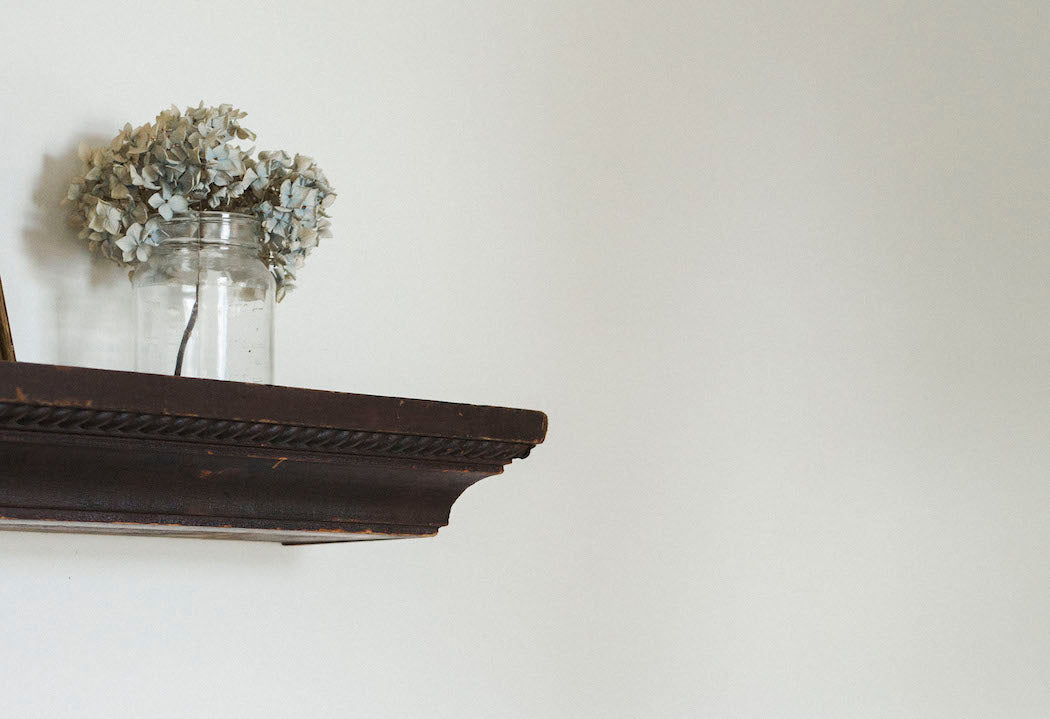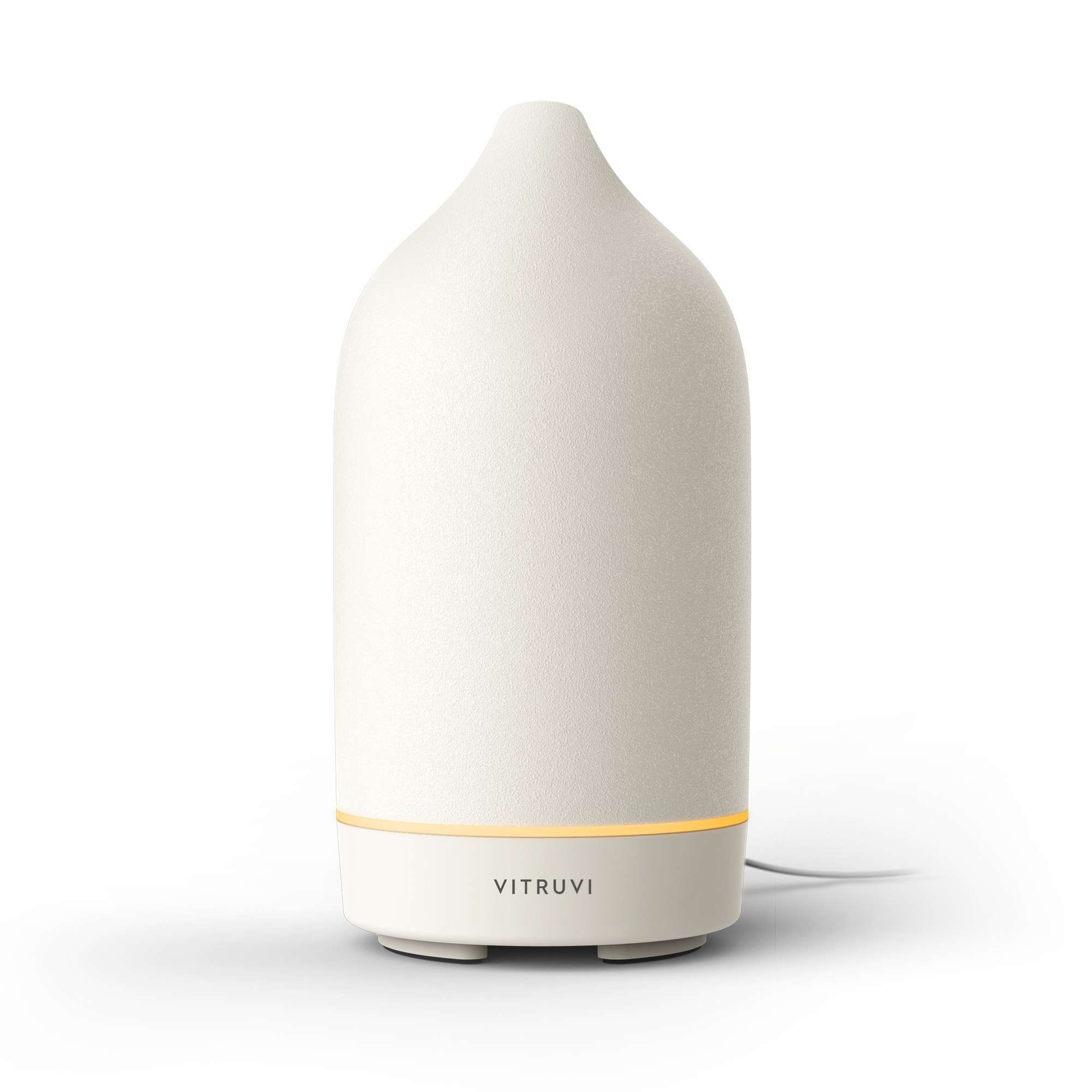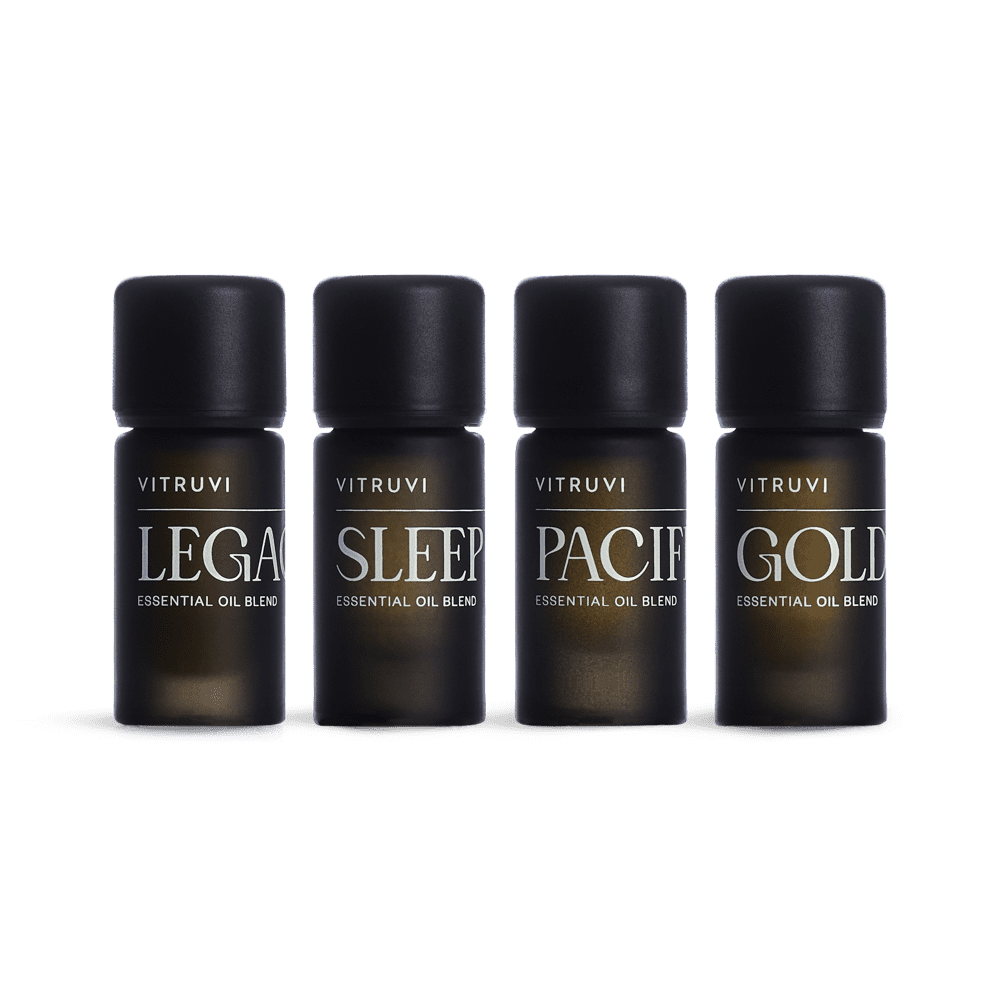Editor’s note: This interview and photo shoot were conducted many weeks ago—before the coronavirus pandemic forced North Americans to practise social distancing and self-isolation. We have chosen to move forward with publishing this piece because we believe that conversations about mindfulness and self-care are more important than ever, as is our desire to help our readers find inspiration and escape.
Dr. Shauna Shapiro walked off the stage after giving her TEDx Talk to a receptive New York crowd and felt elated. The energy in the room was electric, and she knew she had knocked her speech out of the park.
“I walked off stage and was like, ‘Yes, I nailed it!’” she recalls. “And they were like, ‘I’m so sorry, they didn’t record it.’” Which meant her video wouldn’t be put online, which means it wouldn’t live beyond the walls of the auditorium—something that TED ideas are known for.
So they gave her the option of re-doing her talk at lunchtime to an empty room, which she decided was worth the inconvenience. And good thing, too, because since that video was posted in 2017, it has been viewed more than 1.5 million times. The topic? How mindfulness can rewire our brains.
Mindfulness has become a trend as of late, often seen as a gimmick more than a real tool for general well being; but using science, Shapiro explains how it actually changes the pathways in our brains, which helps us lead happier, healthier, and more fulfilling lives. This manifests itself in a variety of ways for Shapiro, but most notably in her daily mantra: “Good morning, I love you, Shauna.” Saying this to herself each morning, she argues, is an important act of self-love that allows her to improve and grow.
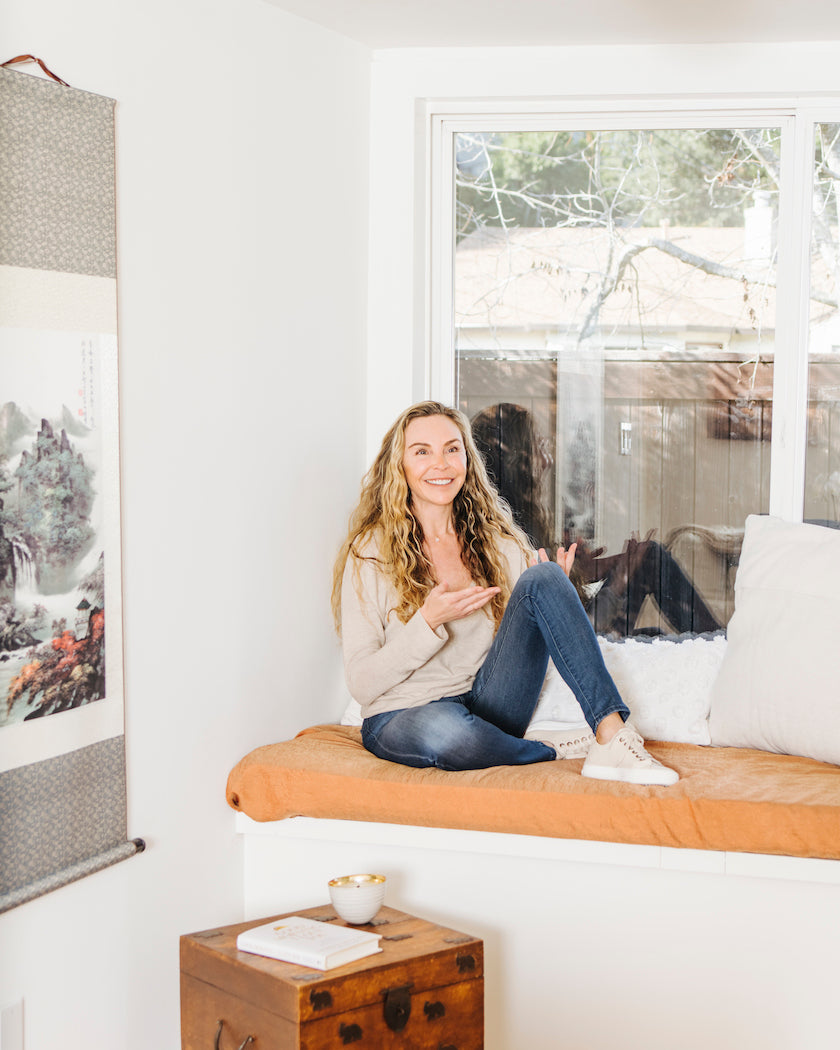
“Shame doesn’t work. It shuts down the learning centres of the brain. It actually shuttles our resources to survival pathways and it robs us of the very things we need to change. If I want to be more present with my son and I notice I’m already thinking about my book chapter or something—if I judge myself and say, ‘God, you’re a terrible mom,’ what it does is it locks me into that terrible behaviour and I don’t have the resources to do something different,” she says. “Self-compassion is incredibly powerful. It’s not weak, it’s not self-indulgent. It actually gives us the resources we need to change.”
Shapiro channels her findings into her work as a professor and author, most recently of Good Morning, I Love You: Mindfulness & Self-Compassion Practices to Rewire the Brain for Calm, Clarity, and Joy. From her sun-filled Bay Area home wafting with smells of Grapefruit Essential Oil, she discusses her thoughts on mindfulness, self-care, and self-love.
You have a lot of books in your home. Do any hold extra-special meaning for you?
That one, that one, and that one were written by my grandparents [Benedict and Nancy Freedman]. They wrote 23 novels together.
This was their first novel [Mrs. Mike]. I could tell you a story about every book on that shelf.
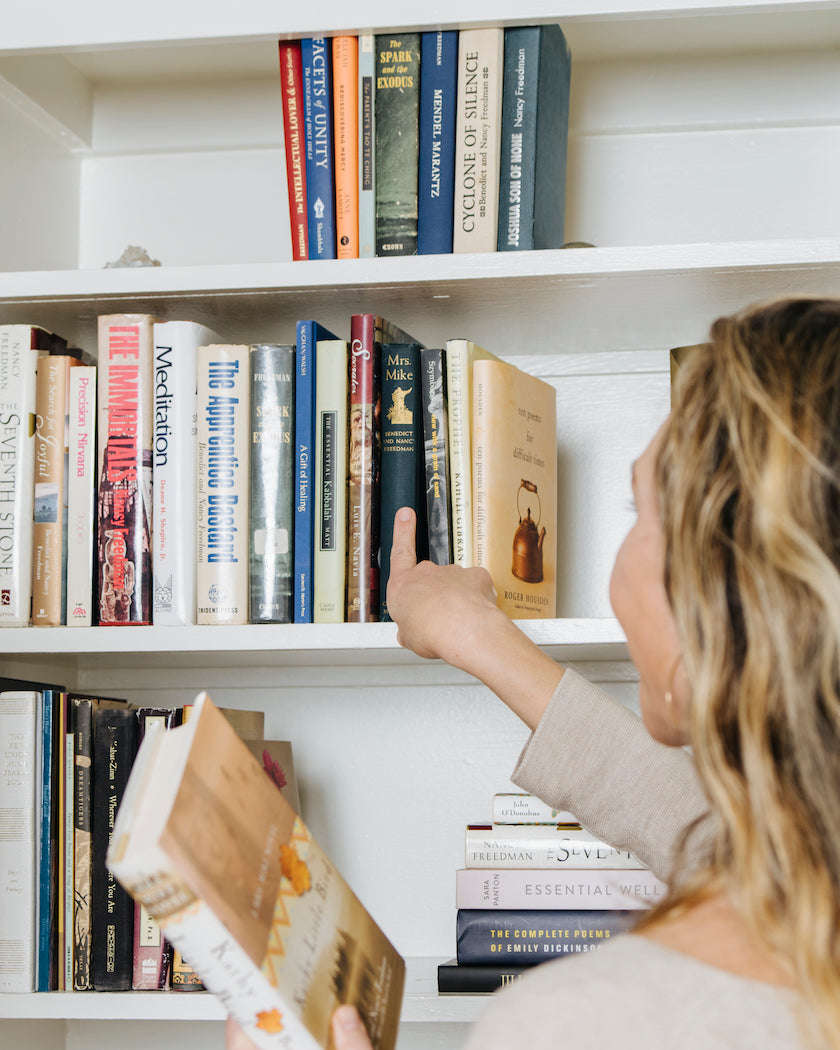
Your grandparents clearly meant a lot to you.
I write a lot about them in my book, which is the first time I have, and I’m so grateful that I had that space. They embodied mindfulness like no one else.
It wasn’t like they meditated, but their curiosity and their beginner’s mind—every day was a fresh day. And also their unconditional love. Because with mindfulness, what people don’t understand is it’s not just about paying attention; it’s about paying attention with kindness. It’s the attitude with which you pay attention, and they had that attitude. They lived with it.
What is the difference between mindfulness and meditation?
Mindfulness is the umbrella, it’s much bigger than meditation. Meditation is like going to the gym and lifting weights, it’s strengthening your mindfulness. There are thousands of different meditations, there’s one mindfulness. And mindfulness is a way of being.
My model of mindfulness is these three core elements: your intention, your attention, and your attitude. Intention is just, “Why am I paying attention?” Because think about it. What’s our most important resource? It’s not time, it’s our attention. And so we have to know, “Where do I want to put my attention? What is my priority?” Our intention sets the compass of our heart. It says, “This is what I value, this is what I want to focus on.” And our attention is training and stabilizing our crazy monkey mind in the present moment.
Kindness and curiosity turn on the learning centres of the brain; they give us the resources to change. If I want to make a change in my life, if I want greater happiness, greater health, if I want to exercise more, if I want to eat healthier, if I want to be a more patient mother, it is not through shame but through our kind attention that I can make a change. And it’s not this kindness where you’re letting yourself off the hook. You’re seeing clearly, that’s the definition of the word. But you’re seeing clearly just like my grandparents would do: with this unconditional love.
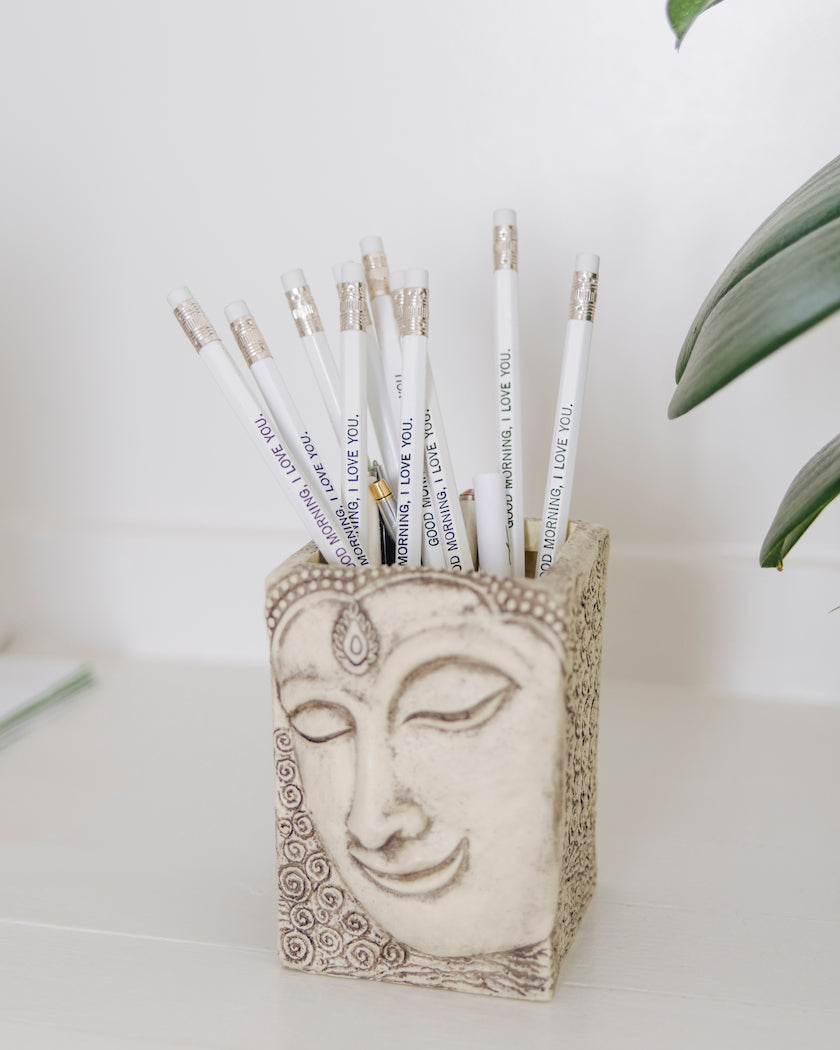
Do you still say “Good morning, I love you” to yourself every day?
Every morning. I don’t think I’ve ever missed a morning. I don’t keep any electronics in my room either, so those first moments are really precious.
Mindfulness is an act of self-care. What else do you do for yourself?
I think a lot of people misunderstand self-care. They think it’s about indulging yourself: “I’m having such a hard day, I deserve this bubble bath.” And not that bubble baths are bad, they’re great, but I think true self-care is literally having the wisdom and compassion to say, “What is authentically best for me right now?” And maybe it is a bubble bath, but maybe it is, “I need to get my taxes in order.”
I’m so happy self-care has become so popular, but I also feel like people are mistaking it for immediate pleasures as opposed to true self-care. And I think the deepest self-care is learning how to treat yourself kindly—treating yourself as you would a dear friend.
For someone who’s just starting out with meditation and mindfulness, what do you suggest?
Start with one minute a day. Don’t try to sit for 20 minutes or an hour. One minute a day, set your timer. Come to your intention: why are you even practicing? “Oh yeah, I want more peace in my life,” or, “I want to see more clearly.” The second step is your attention: feel your body, feel your feet, and then infuse that with kindness. Just like vitruvi infuses steam with beautiful scents of Grapefruit and Eucalyptus, we infuse our awareness with kindness. Then take another breath, and that’s about a minute. It changes your whole day.
Scent actually is a beautiful way to practise mindfulness.
Completely.
It’s like when you walk into a store and it smells good and suddenly you’re awake.
You’re present.
This interview has been edited and condensed.

